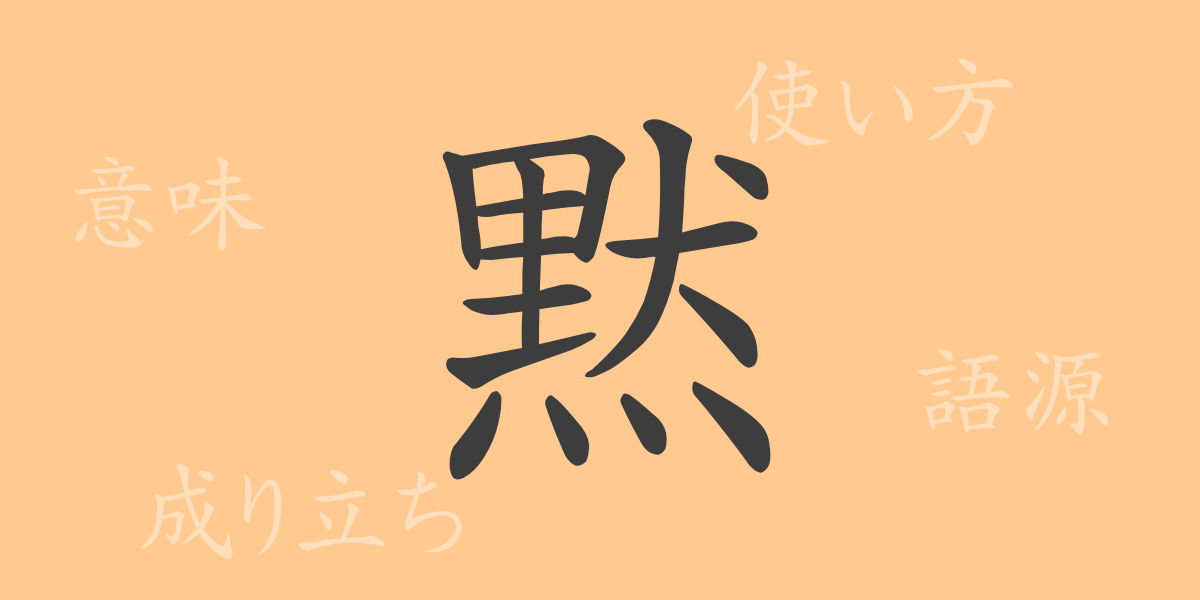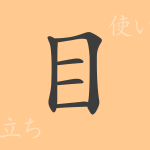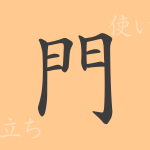Words are mirrors that reflect the human heart, and among them, the kanji “黙” (moku) symbolizes the profound aspect of Japanese culture known as the aesthetics of silence. In this article, we delve into the historical background, meaning, usage, and idiomatic expressions involving this single character, uncovering its allure.
The Origin of “黙” (moku)
The kanji “黙” (moku) has been used in China since ancient times and has a unique origin. Its prototype can be seen in ancient oracle bone script, where the shape of a “dog” covering its “mouth” began to signify silence or being speechless. This pictograph evolved over time, simplifying into the current form of “黙” (moku).
Meaning and Usage of “黙” (moku)
“黙” (moku) means silence, being speechless, or not uttering words. It is often used in situations where one should not speak or when quietly introspecting. Additionally, it can be found in personal names and place names.
Reading, Stroke Count, and Radical of “黙” (moku)
The kanji “黙” (moku) reflects the characteristics of Japanese kanji culture in its readings and composition.
- Reading: In on’yomi (Chinese reading), it’s “モク” (moku); in kun’yomi (Japanese reading), it’s “だま.る” (dama.ru) and “もだ.す” (moda.su).
- Stroke count: 15 strokes in total
- Radical: 黑 (kuro, kurohen)
Idioms, Expressions, and Proverbs Using “黙” (moku) and Their Meanings
There are numerous idioms, expressions, and proverbs that include “黙” (moku), each showcasing the richness of the Japanese language. Here are a few examples:
- 黙々と (もくもくと, mokumokuto): To continue working silently without saying anything.
- 黙認 (もくにん, mokunin): To tacitly approve something without verbal acknowledgment.
- 黙坐 (もくざ, mokuza): To sit in silence, often in meditation or Zen practice.
- 黙殺 (もくさつ, mokusatsu): To ignore something and pass by without saying anything.
- 黙然 (もくぜん, mokuzenn): To be silent and quiet.
Summary of “黙” (moku)
The meaning embedded in a single kanji reflects the depth of its culture and history. The kanji “黙” (moku) goes beyond mere silence, representing the profound human relationships where understanding can occur without words and the psychological state of seeking inner tranquility. Even in modern society, the spirit of “黙” (moku) offers us crucial moments to pause and reflect amidst our busy lives.

























